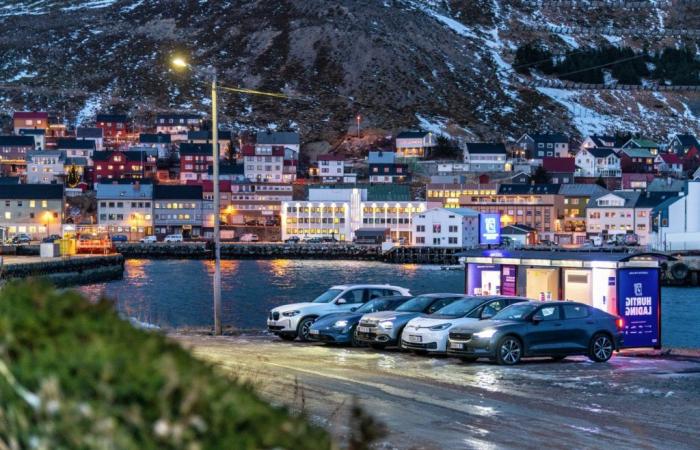Electric car news
In the heart of Europe, Norway is paving its own path in the global automotive landscape, adopting an open stance towards Chinese electric car manufacturers. This Scandinavian country, already recognized as a leader in the adoption rate of electric vehicles, is an exception in refusing to increase customs duties on imports of these cars from China and to keep them at a relatively low level contrary to the new policies of the European Union.
Norway, a privileged market for Chinese electric cars
Norway stands out clearly on the international scene with an impressive rate of new registrations of electric vehicles: 82.4% in 2023. This indisputable figure makes the country a strategic and attractive battleground for many manufacturers, particularly Chinese. Brands such as Nio, BYD and Xpeng have already established their roots there, illustrating the Norwegian market’s receptiveness to advanced automotive technology.
Companies less known in Europe, such as Aiways or Zeekr, also find fertile ground for expansion in Norway. This is explained in particular by a particular openness to new and innovation, a fundamental cultural characteristic of the Nordic nation. The territory therefore often acts as a gateway to Europe for Asian producers seeking to establish themselves on the continent.
Political decisions in favor of freer mobility
Contrary to the European Union’s decisions, which are considering imposing high customs duties – up to 48% – on imports of Chinese electronic vehicles, Norway is persisting in its path of not increasing them. Trygve Slagsvold Vedum, the Norwegian Minister of Finance, underlines the inadequacy of these punitive measures with Norway’s economic and environmental policy, stating that they are “neither relevant nor desirable”.
This position not only reflects a desire to support an already thriving market but also a sign of independence from major European economic decisions, which is consistent with Norway’s non-EU status. This strategic choice presents significant advantages for Chinese brands, which benefit from more favorable conditions in this territory for the distribution of their innovative vehicles.
An impact on imports and market diversity
Around 12% of electric cars imported into Norway are produced by Chinese manufacturers, a remarkable figure especially considering that this excludes recognized brands like Volvo. The presence of rare brands in Europe, such as Voyah from Dongfeng, underlines Norway’s specific interest and openness to players who do not yet dominate the European market.
This dynamic creates a diversified automotive ecosystem, where competition stimulated by the absence of additional customs tariffs pushes the entire sector to innovate even more. For Norwegian consumers, this means increased access to a wider range of technology. electric vehiclesthereby strengthening Norwegian leadership in the adoption of environmentally friendly transport.
The Norwegian approach goes well beyond simple commercial or environmental considerations: it also reveals a long-term vision, where flexibility and independence from European economic policies are structured around a common objective. , that of facilitating an efficient and beneficial energy transition for all.
As Norway continues to support this sector, Chinese manufacturers see an opportunity to strengthen their presence in a critical market, while navigating the sometimes tumultuous waves of international trade policies. The coherence of this policy with global environmental aspirations could well, in time, serve as a model for other nations seeking to balance economic growth and ecological responsibility.
Written by Albert Lecoq
Specialist in electric car buying guides, I am passionate about new technologies and am a strong supporter of the adoption of electric technology and sustainable mobility.
React to the article






